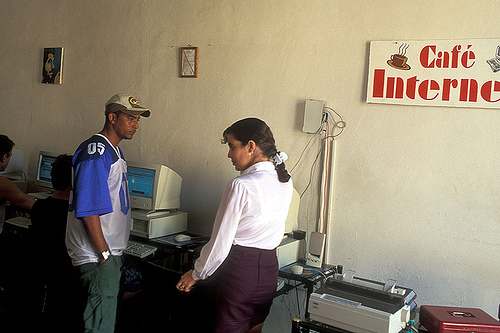President Obama has recently announced that he would lift the trade embargoes and sanctions against Cuba, which have been in place since the 1960s. This follows Obama’s pledge to normalize relations between the two countries and is an important step towards renewing and revitalizing American and Cuban relations.
The Internet however limited, expensive and restricted in Cuba is now expected to experience a new era of open Internet and improved connections. With help from the US Government, the new relations are expected to increase the number of Cubans who hold access to the Internet. As trade embargoes are relaxed, Cuba anticipates an influx of communication devices and various other technologies with Internet services. Additionally, the Cuban government is expected to further support and increase means to expand Internet access among its citizens.
According to Cuba’s National Statistics Office and the International Telecommunication Union, 25% of Cubans have access to the Internet. This statistic has been criticized for being inaccurate as it includes only those who “..log into a government-controlled Intranet of state-approved websites.”
Furthermore Freedom House, an Internet watchdog reported only 5% of Cubans ‘really’ hold access to the open Internet. While, there are no home Internet services, citizens depend on government run Internet cafés that charge anywhere between $6 and $10 for an hour of Internet connection. With the average weekly salary in Cuba being only $20, that price limits Cubans’ abilities to access the Internet on a regular basis.
In 2011, the Cuba National Statistics Office reported that only 783,000 computers are operable in the country. Numbering over 11 million, the population is clearly lacking vital technological and Internet resources.
Since President Obama’s pledge to normalize the relationships with Cuba, the Cuban government initiated a project to provide its residents with open Wi-FI and the city of Santiago will be providing improved Wi-Fi services early 2015.
This is considered a fundamental step between the two countries. The liberation from Internet control and growing access to the Internet is crucial to Cuba’s evolving society and economy.




